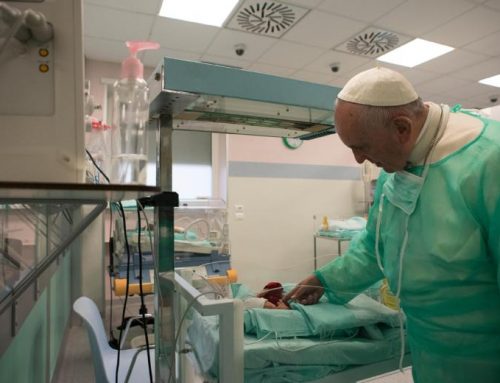Pope Francis reflects on the meaning of suffering in an address to the Pontifical Biblical Commission on Thursday, saying the Bible provides an answer to the question of sickness and suffering that is neither utopian nor fatalistic.
By Christopher Wells (Vaticannews)
In the face of suffering and pain, human beings can either withdraw within themselves “to the point of despair or rebellion,” or welcome it “as an opportunity for growth and discernment of what really matters in life, to the point of an encounter with God.”
The latter, Pope Francis said on Thursday, “is the vision of faith we find in Sacred Scripture.”
The Holy Father made his remarks during an Audience with members of the Pontifical Biblical Commission, which has been studying the theme of “sickness and suffering in the Bible.”
Jesus’ healings a sign of God’s closeness
The Pope noted that in the Old Testament, those who suffer constantly turn to God in their affliction, while in the New Testament, Jesus’ ministry is marked by a profound concern for the sick and suffering, revealing God’s “love, forgiveness, and search for sinful, lost, and wounded humankind.”
The many miraculous healings Jesus performs are a sign that “God has visited His people and that the Kingdom of Heaven is at hand,” said Pope Francis, explaining that Jesus’ identification with the weak culminates in His passion and death, “so that the Cross of Christ becomes the pre-eminent sign of God’s solidarity with us and, at the same time, the possibility for us to join Him in the work of salvation.”
Neither utopian nor fatalistic
The Holy Father said that the Biblical view of suffering is neither “banal and utopian” nor “fatalistic.” Instead, “the biblical man feels invited to face the universal condition of pain as a place of encounter with the closeness and compassion of God, the good Father, Who, with infinite mercy, takes charge of His wounded creatures to heal them, raise them up, and save them.”
In Christ, he continued, “even suffering is transformed into love,” with the hope of ultimate resurrection and salvation.
Human and Christian solidarity
Finally, Pope Francis said, suffering teaches us to live human and Christian solidarity according to the “style” of God: closeness, compassion, and tenderness.” Recalling the parable of the Good Samaritan, he reminded his hearers that caring for others in their pain is not an “optional choice” for human beings, but an “indispensable condition” not only for their growth as an individual but also for “the construction of an inclusive society that is truly oriented towards the common good.”
The Pope concluded his message with his personal thanks and encouragement to the scholars of the Commission for their work, while reminding them that their work will continue to grow “the more you come to know how to personally embrace the mystery of the Incarnation in your life of faith.”










